There are six common driving offences that are repeatedly catching motorists out annually, all of which can result in your license being revoked, or you could face a heavy fine or a prison sentence (depending upon the severity of the offence).
The general speed limit rules for cars are:
- For built-up urban roads with street lighting, the speed limit is 30 mph.
- For single carriageway roads, the national speed limit is 60 mph.
- For dual carriageways and motorways, the speed limit is 70 mph.
On the other hand, depending on the offence reported, if you didn’t exceed the speed limit by a significant amount, you could, in fact, avoid your penalty points and fine by taking a speed awareness course. This is a course which takes place in one day and with it being said in the name of the course, it makes participants more aware of their speed. This method is only offered at the discretion of the police and cannot be requested.
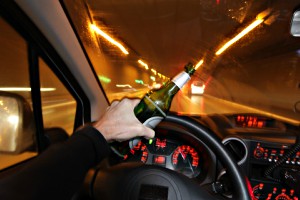
Drink Driving
This offence would occur if a driver is caught behind the wheel or found in charge of a vehicle with too much alcohol in their system. This can also expand to if you are sat in the car with the keys whilst under the influence, or if you refuse to take a breath test when asked to do so, by the police.
- Overseeing a vehicle while above the legal limit or unfit through drink may get you the following: a possible driving ban, up to a £2,500 fine or even imprisonment.
- Driving or attempting to drive while above the legal limit or unfit to drive through drink may get you the following: a driving ban for at least 1 year (up to 3 years if previously convicted within the last 10 years), an unlimited fine or a prison sentence.
- Refusing to provide a specimen of breath, blood or urine for analysis may get you the following: a ban of at least 1 year, an unlimited fine and or the risk of imprisonment.
- Causing death by careless driving when under the influence of drink may get you the following: a ban from driving for at least 2 years and an extended driving test before your license is returned, an unlimited fine and up to 14 years’ imprisonment.
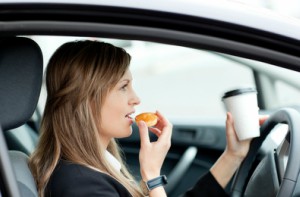
Careless Driving
This can be defined as either driving without due care and attention or driving without reasonable consideration for other road users. Examples of careless driving can be tailgating, not giving way at a junction, using the wrong lane at a roundabout or eating/drinking at the wheel.
You can be dealt with in five ways:
- Summons – plead guilty and accept the fine or plead not guilty and have the case heard in Court.
- Summons with an offer of educational training – accept and attend the course or refuse the course and request a hearing.
- Fixed penalty – accept the penalty or request a summons and either plead guilty and accept the court fine or not guilty and have the case heard in Court.
- A fixed penalty with an offer of educational training – accept the penalty or accept and attend the course. If you refuse or fail to complete the course and don't accept the penalty, you’ll be summonsed and can either plead guilty and accept the court fine or not guilty and have the case heard in the Magistrates Court.
- A warning and no further action.
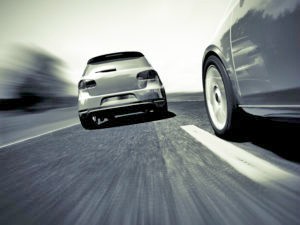
Dangerous Driving
This term is defined as the type of driving style that any competent drive would level as reckless or dangerous. This includes driving a vehicle which is in a dangerous condition, even if the driver behind the wheel was driving in a “safe” manner.
An example of a person dangerously driving is when they are going too fast, overtaking dangerously or are unfit to drive (having an injury, being unable to see clearly, etc.).
There are five major offences which occur, that are associated with the category of "dangerous driving":
- Causing death by careless driving when under the influence of drink or drugs; the penalty received is 1 to 14 years in prison, an unlimited fine, or both; and disqualified for a minimum of two years.
- Causing death by dangerous driving; the penalty received is 1 to 14 years in prison and disqualified for a minimum of two years.
- Causing death by careless, or inconsiderate driving; the penalty received is up to 5 years in prison and disqualified for a minimum of one year.
- Causing death by driving: unlicensed, disqualified, uninsured drivers; the penalty received is up to 2 years in prison, an unlimited fine, or both; and disqualified for a minimum of one year.
- Murder or manslaughter; the penalty received is up to life imprisonment, and disqualified for a minimum of two years.
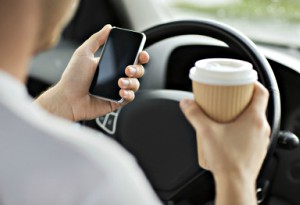 Mobile Phones
Mobile PhonesThis is a common distraction for all drivers, whether it is changing a song or answering a work call. It is illegal to make or receive a phone call behind the wheel unless you are using a hands-free device. Therefore, you can be charged with a mobile phone offence if you do anything with your phone while the engine is running, even if the vehicle is stationary.
Consequently, you can receive 6 penalty points and a £200 fine and to a maximum be taken to court where you can be banned from driving and receive a maximum fine of £1,000. This can increase to £2,500 if you’re driving a lorry or bus.
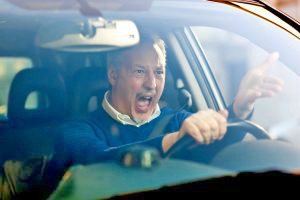
Road Rage
This is not regarded as a specific offence under UK law, therefore it does differentiate from the other driving offences previously mentioned, in which it is unlikely to result in penalty points or a disqualification from driving.
The punishments for this depend upon how the road user reacts in the throes of their road rage, such as if they physically assaulted someone, they could face an assault charge.
So, in summary, to avoid these huge fines and any penalty points being put onto your license, think about your actions before you do them and stay safe on the roads.
Read more CarCliq guides here.